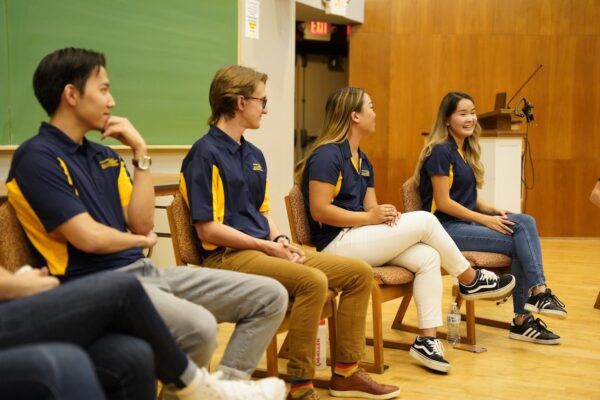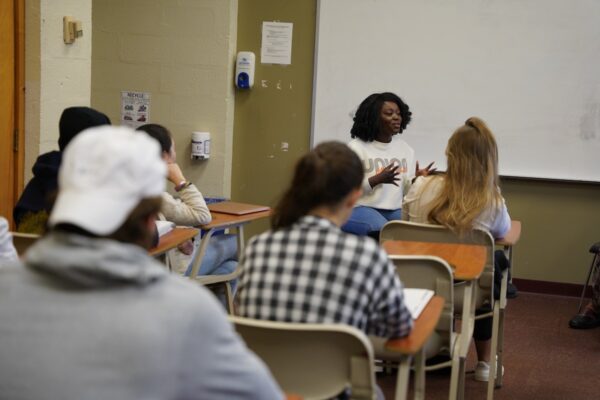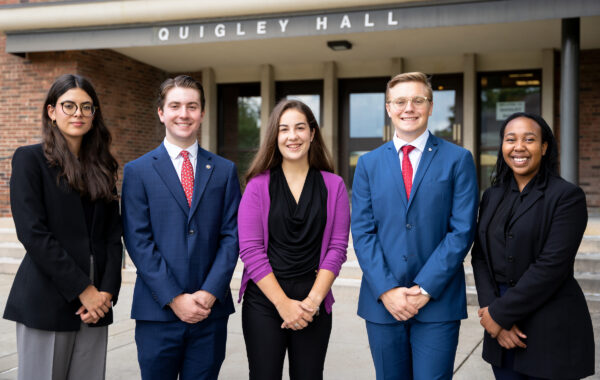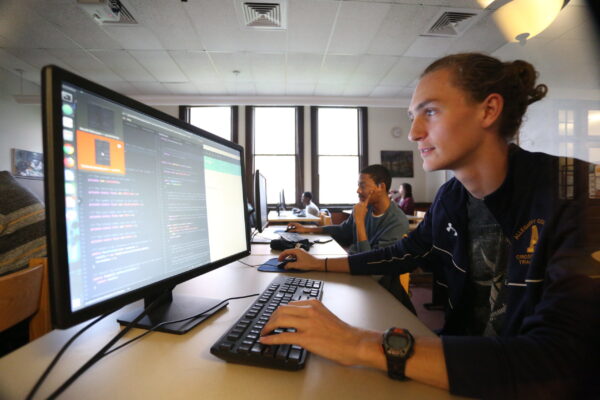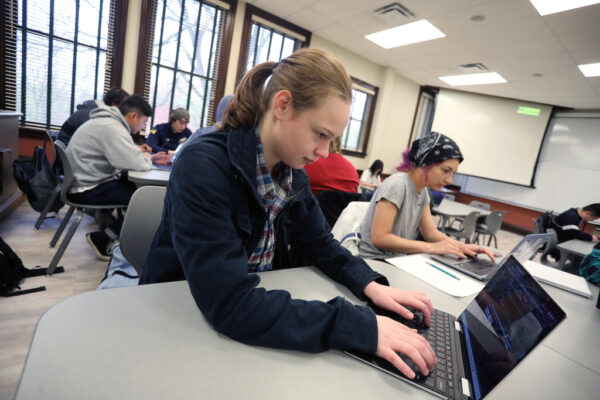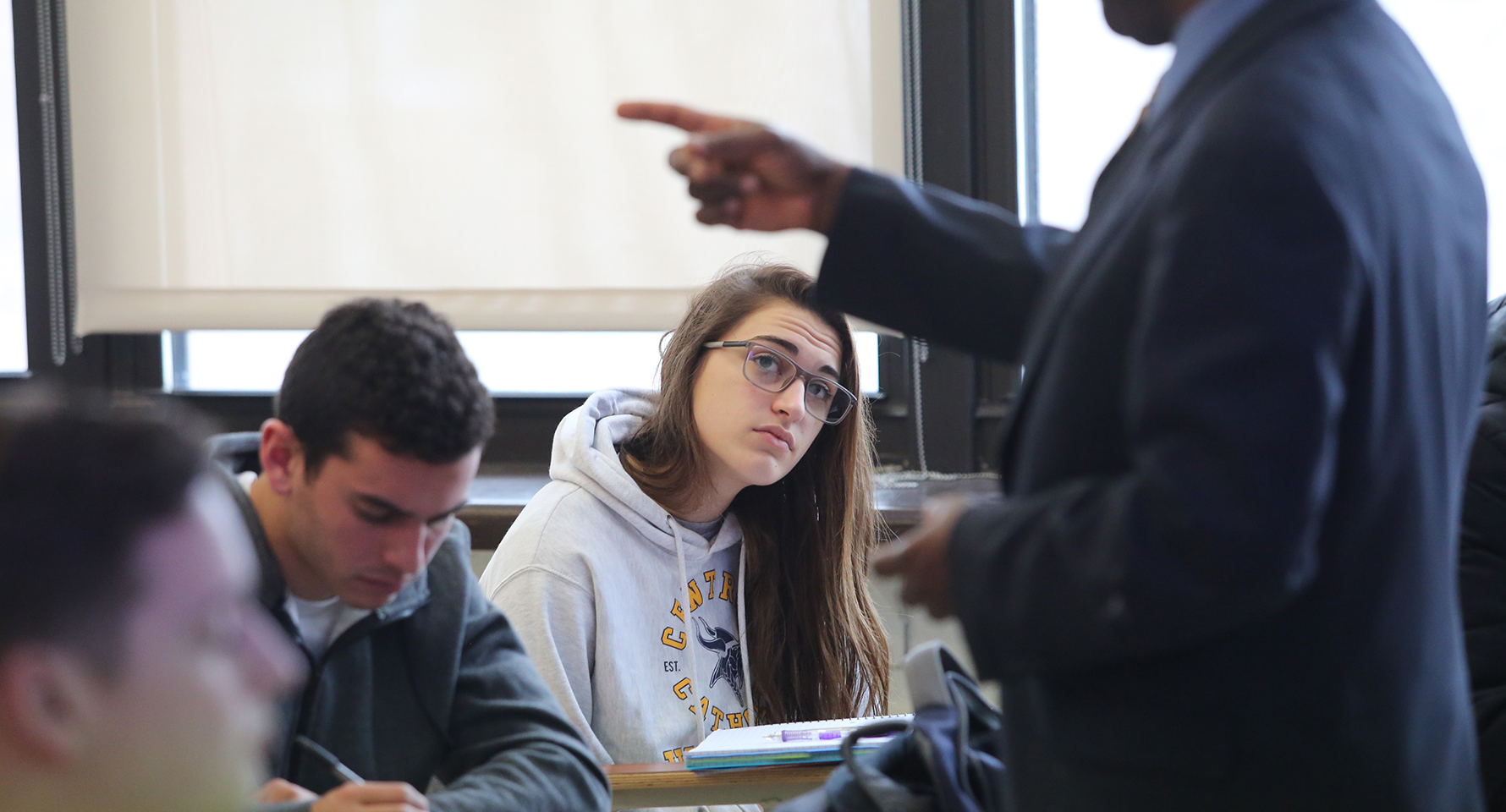
Economics
Social and Behavioral Sciences
Why Major in Economics at Allegheny College
As an Allegheny Economics student, you’ll learn analytical and problem-solving abilities as you study how and why incentives influence the choices that people make. Putting those skills into practice, you’ll set the stage for careers in business, finance, management, and other fields.
Unusual Combinations
Students often combine Economics with:
Division
- Social and Behavioral Sciences
Program Type
- Major
- Minor
Number of Credits
48 for major24 for minorAn Inside Look
Learn how we empower students for success by emphasizing real-world experience and providing a strong liberal arts foundation. Our graduates learn how they can use their financial insight and management expertise to serve humanity and leave a lasting legacy.
Where Economics Alumni Work Today
Relationship Manager
KeyBank
Kellie Lindstrom Liston ’17
Procurement Specialist
McKinsey & Company
Raymond Jozwiak ’15
Vice President, Organizational Excellence & Alignment
Indiana University Health
Andrea Kessler ’08
I quickly learned the real world isn’t always that simple, but my experience abroad and ability to communicate with different types of people landed me my first job in finance. And it ultimately got me to where I am today.
Your Four-Year Journey
Year 1: Understanding
Students take Introduction to Microeconomics and Macroeconomics to build a foundation for understanding how the economy works. They meet student Fellows of the Bruce R. Thompson Center for Business and Economics (CBE), faculty and staff, alumni and other visitors to campus, who will provide guidance and mentoring. Attending CBE events, such as the Lunchtime Learning series, will help students chose among courses of study and career paths.
Year 2: New Approaches
Students start to take theory courses (microeconomic and macroeconomic theory and statistics I and II), helping them build their modeling and reasoning skills. They start to take field courses in areas of interest, such as Development, Finance, International Economics, Law & Economics, Marketing, and Money & Banking. If they haven’t done so already, students start to actively participate in CBE events, such as the Financial Literacy Challenge and the Zingale Big Idea Competition. They may apply their class materials in a coop opportunity provided through ALIC. Coordinating with the Office of Career Education, they start career and internship planning. They may also plan to do summer research with faculty, engaging in Allegheny’s summer research programming.
Year 3: Delving Deeper
During their third year, students continue to specialize by taking field courses in areas of interest. Besides their coursework, they have important side-jobs: applying their in-class experiences to understand and help decision-making by individuals and organizations, building their professional networks, and finding an internship for the following summer. By this time, students may be CBE Fellows, earned their Bloomberg Certification, or become members of the Wealth Management Club, Women in Business and Economics Club, or ODE, the national Economics Honors Society (open to both Business and Economics majors).
Year 4: The Comp
During their final year at Allegheny, students complete their Senior Seminars and Senior Projects, the capstone of their time in college. Most alumni report that their Senior Projects were the most challenging and satisfying assignment that they did at Allegheny. The Senior Project allows students to find a topic that deeply interests them and study it, under faculty guidance, for an entire school year. Students also continue to engage in CBE events, building their professional networks with visitors to campus, and planning for jobs, graduate schools, and other post-graduation experiences. The vast majority of students who engage actively in learning both in and outside of the classroom have accepted a job, graduate school position or have other solid plans upon graduation.
Featured Courses
Faculty and Staff
Assistant Professor
MSc London School of Economics; BA UC San Diego. Retired Foreign Service Officer.
Email: cfinaret@allegheny.edu
Phone: 814-332-3340
Assistant Professor
Ph.D., University of Connecticut, Agricultural and Resource Economics; M.A., Boston University, Economics; B.A., China Agricultural University, Economics; B.A., University of Colorado, Economics
Email: xsun@allegheny.edu
Phone: 814-332-3346
Featured News
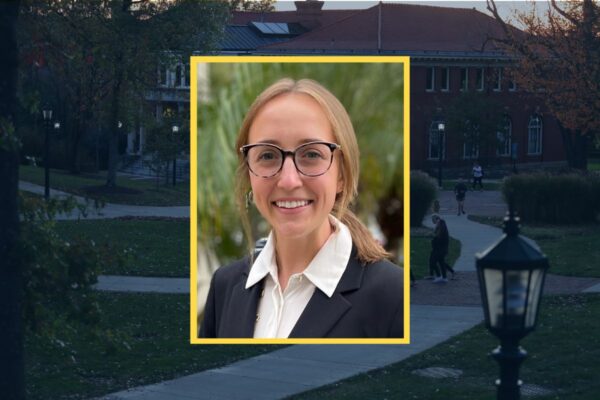
Allegheny College Graduate Finds Calling In Healthcare After Winning The Zingale Big Idea Competition
Liana Leja ’17 never imagined that her research skills and entrepreneurial drive at Allegheny College would culminate in a healthcare career — today she serves as a nurse practitioner at the Paley Orthopedic and Spine Institute.
Program Contact
Tomas Nonnenmacher
Patricia B. Tippie Endowed Professor in Economics


